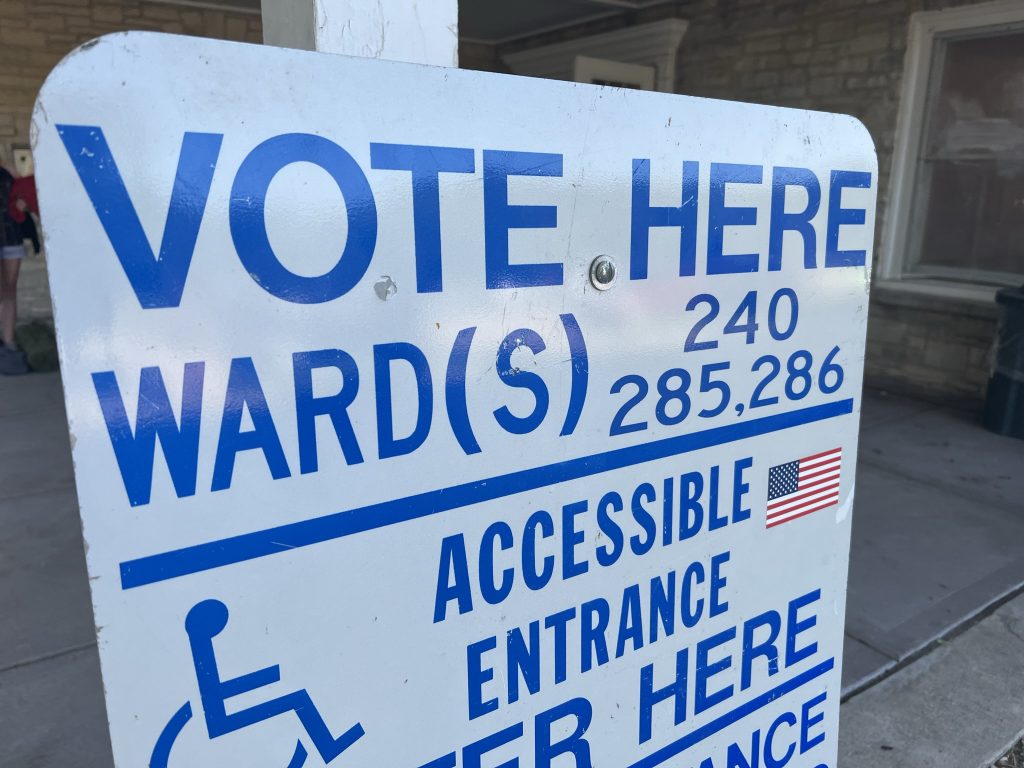Judges, Legislators Consider Changing Wisconsin’s Election Laws
A court ruling could reshape the election-law debate.
A Waukesha County judge’s order requiring proof of citizenship to vote threatens to upstage fragile Capitol negotiations between Republican and Democratic legislators over potential changes in election laws.
The ruling came days after legislators said they hoped to agree on a few non-partisan changes, including allowing local clerks to begin counting absentee ballots the day before elections. The number of absentee ballots in Wisconsin has soared; more than 1.5 million were cast in the November 2024 presidential election
But Waukesha County Circuit Judge Michael Maxwell ruled that the Wisconsin Elections Commission (WEC), which oversees elections administered by local clerks, is “violating state and federal statutes by maintaining an election system that potentially allows individuals onto the voter rolls who may not be lawfully entitled to cast a vote in Wisconsin.”
WEC “is failing in the most basic task of ensuring that only lawful voters make it to the voter roll from where lawful votes are cast,” Maxwell added.
Maxwell said state officials should verify the citizenship of its 3.6 million registered voters by the Feb. 18 non-partisan primary – a deadline state officials said they could not meet.
State Department of Justice officials asked that Maxwell stay his order pending an appeal. An Oct. 31 hearing was scheduled on that request.
Attorney General Josh Kaul Kaul said the court’s order would “require a massive overhaul of Wisconsin’s voter registration system and the creation of new verification requirements not otherwise provided for by statute.”
Also, Kaul said the judge’s order does not specify how state officials could verify the citizenship of every voter. Requiring a passport to vote, or coordinating WEC voter records with state Department of Transportation driver records would be a lengthy, complicated process, he added.
One sign of the uncertainty was the reaction of attorney Don Millis, a Republican appointee on the WEC and a veteran of decades of election law controversies.
Asked what options WEC could consider, if Maxwell’s order to meet a Feb. 18 deadline to verify voters’ citizenship is upheld, Millis said, “I have no comment yet because I need to figure out what is possible.”
Conservative groups praised Maxwell’s decision.
“[It’s] a resounding affirmation of the principle that only legal votes should count in our elections,” Annette Olson, CEO of The MacIver Institute and leader of the Election Integrity Network Coalition said in a statement.
“For too long, Wisconsin’s system has relied on self-affirmation without verification, risking the dilution of lawful votes by ineligible individuals,” Olson added.
It’s unclear whether Maxwell’s ruling, and a potential appeal of it to the state Supreme Court, will derail Capitol negotiations on election-law changes. There has been a new willingness by leaders of both parties to negotiate changes they would pass and ask Democratic Gov. Tony Evers to sign.
Legislative leaders and the governor compromised enough to pass a $114-billion two-year state budget earlier this year. Could that cooperative spirit translate into agreeing to let local clerks count absentee ballots before election day or to make other changes?
Democratic Rep. Lee Snodgrass said she and Republican Rep. Scott Krug will continue “civil conversations and debate .. in the same room, from the same podium and with the same goal in mind – in spite of diverging ideas.”
For his part, Krug said Republicans will not go along with requests by President Trump for major changes like ending mail-in absentee voting.
“So as you hear things coming out of Washington — ‘We don’t want to do mail voting anymore. We’re going to get rid of machines and do hand counting and some things like that,’ — those are things we have not included in our proposals,” Krug said. “Because that’s not the Wisconsin way.”
But Democrats say they will oppose one GOP proposal to have 24-hour monitoring of absentee drop boxes outside public buildings and want Republicans to drop that proposal.
Assembly leaders have taken the lead on potential election-law changes. The Assembly-passed bill to allow the processing of absentee ballots on the day before the election died in the Senate last year.
An Assembly committee last week held public hearings on bills to require local officials to provide uniform instructions for absentee voting and to move up – from Dec. 1 to Nov. 16 – the date on which nomination papers can be circulated for a spring election.
It’s a safe bet that there will be changes to election laws before the February primary. But who – judges or legislators – will make them?
Steven Walters started covering the Capitol in 1988. Contact him at stevenscotwalters@gmail.com
If you think stories like this are important, become a member of Urban Milwaukee and help support real, independent journalism. Plus you get some cool added benefits.
The State of Politics
-
A Wisconsin Political Trivia Quiz
 Dec 15th, 2025 by Steven Walters
Dec 15th, 2025 by Steven Walters
-
The Fight Over Wisconsin’s House Districts
 Dec 8th, 2025 by Steven Walters
Dec 8th, 2025 by Steven Walters
-
The Battle Over On-Line Betting
 Nov 24th, 2025 by Steven Walters
Nov 24th, 2025 by Steven Walters























First the Right despised all forms of absentee and mail-in voting. Then they became huge proponents of them. Now they’re back to hating them again, with the tired excuse of the “potential” of voter fraud. All of this hoo-hah about voting, and yet they offer no proof of fraud or any other voting irregularities that would alter the results of any election.
reTrumplicans have made it crystal clear that they want the voting process to be as difficult as possible for everyone, because in their minds if fewer people vote their side has a higher chance of winning. The “potential” for voter fraud is being forced down our throats by the Right by limiting access to voting in order to tip the scales in their favor.
Well stated TosaGramps. What Maxwell and RRRs (radical reactionary republicans) fail to understand are the voting principles set out in the Constitution. Voting is NOT a privilege. It is a responsibility. As citizens our role is to communicate our demands to our representatives. Voting is the primary means for doing such. RRRs equate voting with driving a car or using a library. Those are privileges. Voting like paying taxes is a responsibility necessary to preserve our democratic republic form of government. It is clear that RRRs do NOT want to preserve and protect our Constitution. They happily support imposing a fascist dictatorship on the American people. The fearmongering they do around elections is just a smoke screen hiding their ultimate goal.
If RRRs truly believed in fair elections, then they would support efforts/legislation to make it possible for ALL citizens,18 and older, to vote. I remind you that all our legislators, representatives, and senators take an oath to “preserve and protect our Constitution. Their efforts to prevent citizens from voting is in direct violation of our Constitution.
TosaGramps, I’m not sure that Trump wants to make voting difficult for “everyone”. What I fear is, if alternative voting methods (early voting, mail-in voting, etc) are killed, Trump may pull a stunt like sending the military into cities (but not into suburbs or rural areas) right before Election Day. This would reduce “blue” votes in cities while having little effect on “redder” areas.